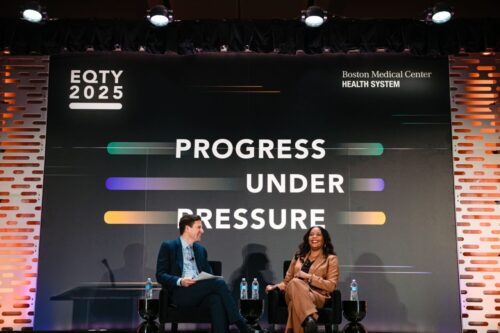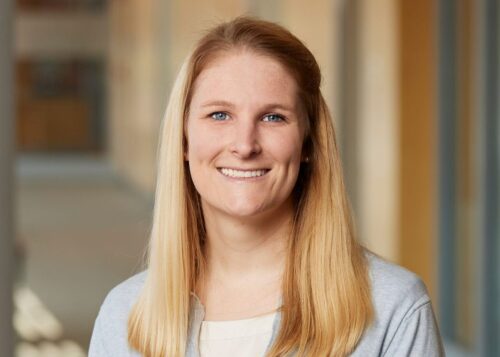At Boston Medical Center, experts from the Cancer Center are exploring how new and existing therapies could fight the COVID infection.
COVID-19 is known to cause severe lung inflammation, with serious complications including pneumonia, acute respiratory distress syndrome (ARDS), and sepsis of the internal organs. The resulting breathing difficulties can lead to the need for expensive and limited treatments using ventilators and ECMO machines. While a vaccine for the virus is yet out of reach, medical researchers are working to help current patients, exploring therapeutic drugs that could fight off or prevent inflammation in the lungs. Among them are remdesivir, the malaria drug hydroxychloroquine, and the HIV drugs lopinavir and ritonavir.
However, the use of each of these drugs against COVID-19 is experimental. Only clinical trials can show with reasonable evidence whether a treatment is effective and safe enough for use.
Oncologist Matthew Kulke, MD is the medical director of Boston Medical Center’s Clinical Cancer Center and is responsible for leading clinical trials of promising drugs for hematology and oncology patients. He and his team are developing new research protocols for possible treatments for the COVID disease that has ravaged the globe. Through clinical trials, they are creating an evidence base that will help research teams move the needle on a coronavirus treatment or cure. Kulke recently spoke with the president and CEO of Boston Medical Center Health System, Kate Walsh, about the clinical trials his team is working on.
Kate Walsh: We serve a population that can be underserved, but it’s also understudied. And here we have this pandemic that we know is disproportionately affecting the population we uniquely serve. I wanted to talk a little bit about the ideas that have come out from your faculty at the Cancer Center to bring the state-of-the-art innovative thinking to COVID-19.
Matthew Kulke, MD: This is a great example of where you really need innovative thinking — none of us have faced anything like this before. It’s been really exciting to see how the faculty are coming together and brainstorming. For example, we had a faculty meeting by Zoom and one of our scientists brought up this idea that an old chemotherapy, called etoposide, might be useful to help decrease the inflammation in COVID patients. One of our other clinical faculty said COVID inflammation sounds like a really rare hyper-inflammatory condition called HLH, which we use the same chemotherapy drug, etoposide, for. Lo and behold, over the weekend a bunch of our faculty put together trial protocols that we’re now going to try to use in our COVID patients to help them to try to decrease this inflammation.
KW: We’ve heard that people who have had the disease could potentially benefit others because they’ve developed immunity and convalescent serum. What is that?
MK: It’s a blood product. Patients who have recovered from COVID have antibodies to COVID — and the idea is that if you’ve got those antibodies, maybe they can be used to help somebody else. So by taking the serum, which is like a blood donation, and then transfusing a patient who might have COVID, you’re giving them the antibodies as a potential way to help them fight the disease.
KW: And has that process started at Boston Medical Center?
MK: We’re just beginning. We’ve done a few patients, and I think we’ll be involved in another clinical trial with some of our other partnering academic institutions to look at this further.
KW: How are we involved in other clinical trials — whether for a novel agent that may or may not be helpful in this disease, or an old agent repurposed for this disease?
MK: We’re looking at those as well. We have another faculty member, Dr. Sanchorawala, who’s very well known in amyloidosis, as well as multiple myeloma. Dr. Sanchorawala has been involved in developing a new drug for that indication and it looks like, through some other mechanisms, that drug might also be helpful in COVID. We’re going to be part of one of those studies as well through Dr. Sanchorawala.
KW: That’s wonderful. Her work is internationally known, so that hopefully will have the impact that we need against this very challenging pandemic.
MK: Exactly.
This interview has been edited and condensed.


